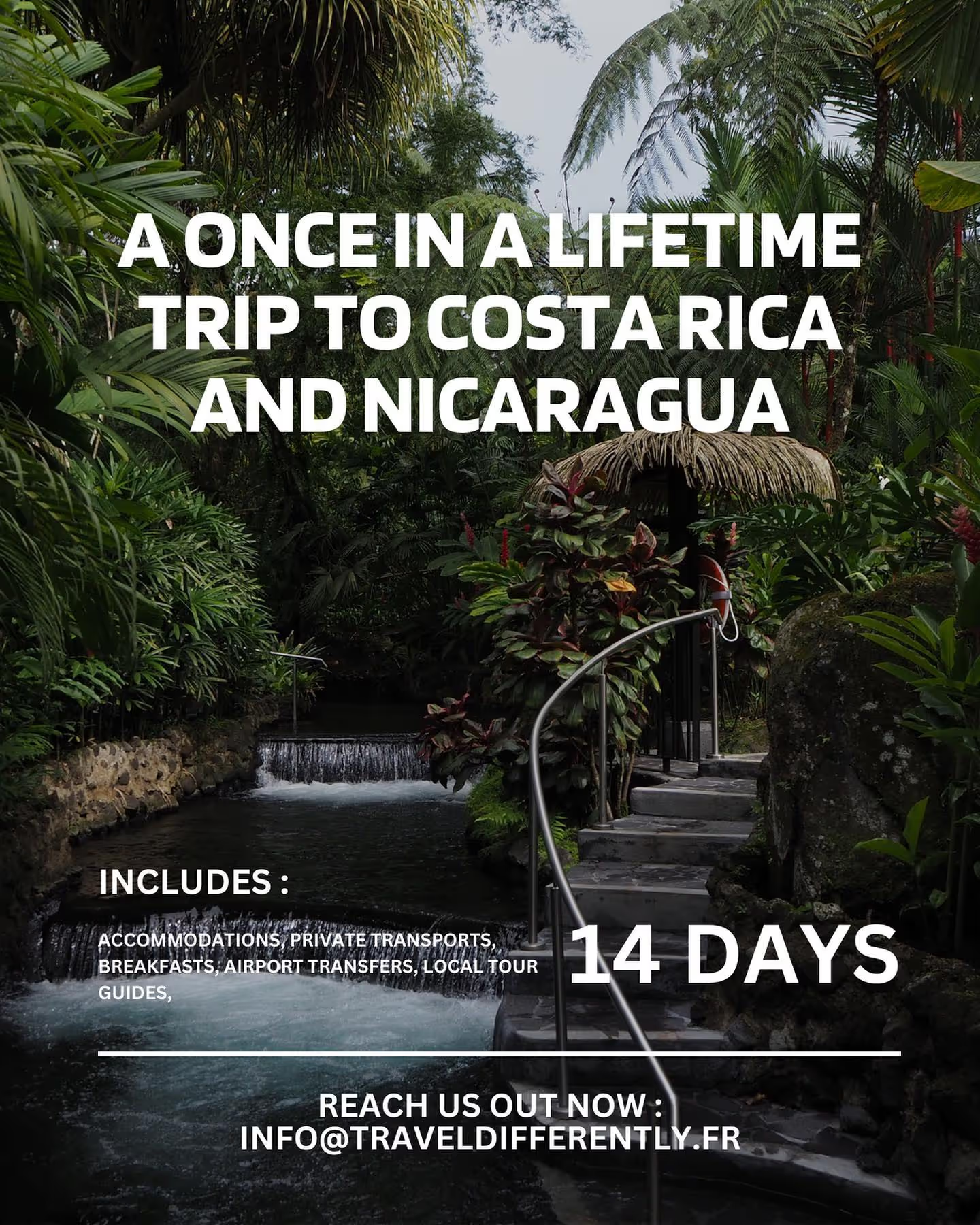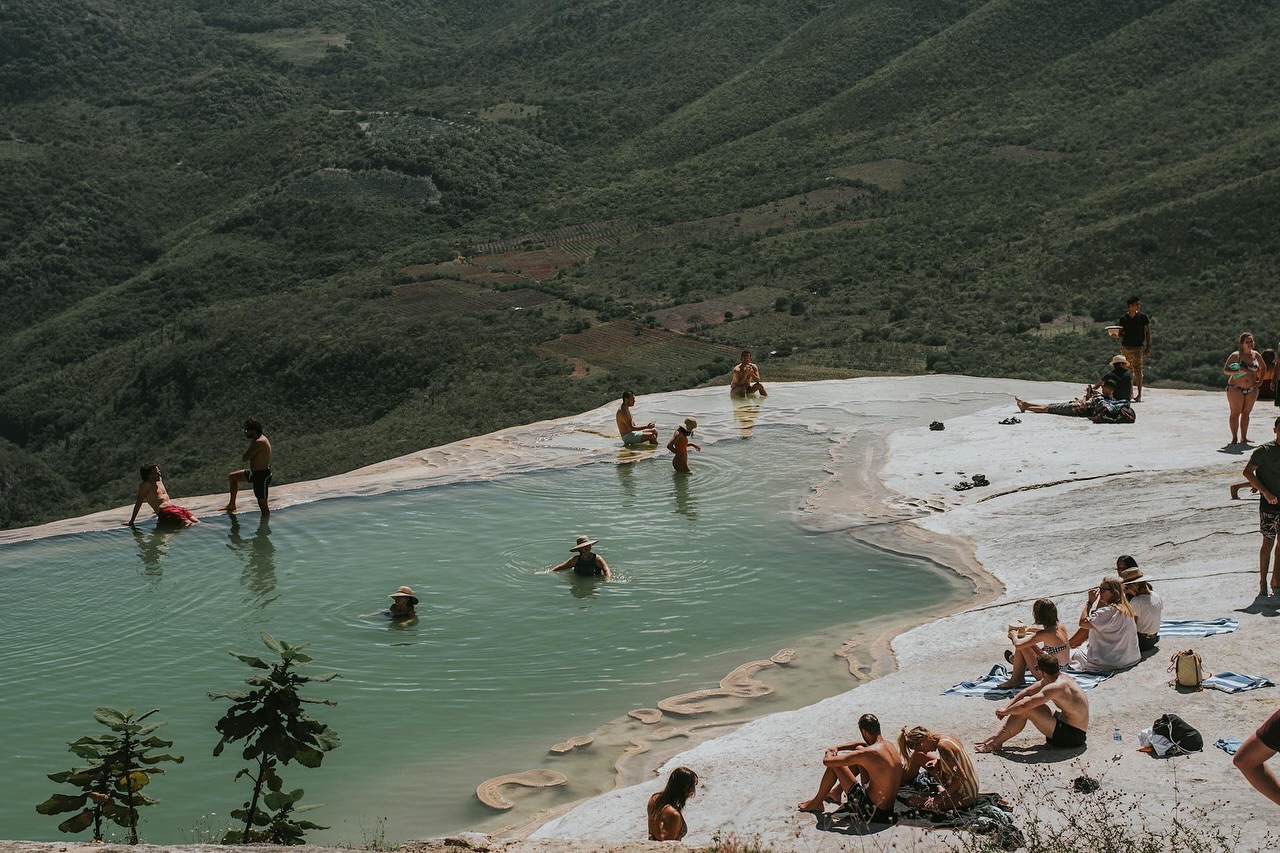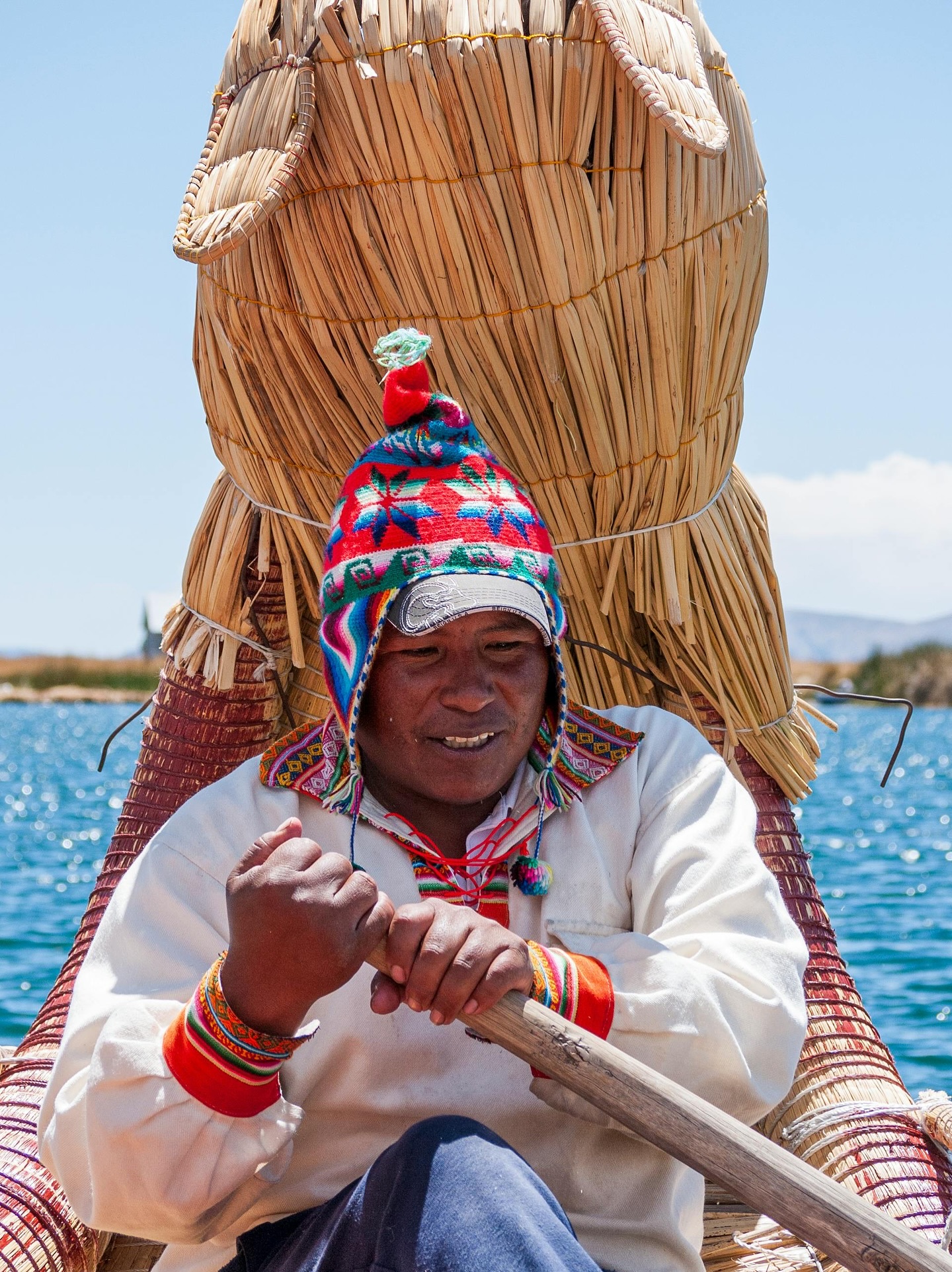Going on a trip is one of the most rewarding experiences imaginable. The world is full of beauty and wonder, and there’s nothing quite like seeing it for yourself. But when you travel, there is also an environmental impact that comes with flying all over the globe. While traveling can be great for your health and well-being, it isn’t always good for the planet—and that’s why we have to be more sustainable while on our adventures!
According to the World Tourism Barometer, 95% of the world's tourists are concentrated in less than 5% of the land area.
It can also be said that social networks, especially Instagram, promote this mass tourism. We look at all the influencer posts, and we all say to ourselves "I want to go there!". The problem is that a lot of people are saying the same thing. It generates a lot of nuisance in some cases, and a lot of territories are destroyed in less than a season.
On the other hand, according to a booking study in 2019, 72% of travelers consider that immediate action is essential, and that people should opt for sustainable tourism alternatives, to save the planet for future generations! Also, 71% of those surveyed would like to have more green, responsible travel options! People are ready to act and change their travel habits, but for lack of a solution they don't necessarily do it.
But what about when you've found sustainable travel that respects local communities and the environment ? Now, you must not forget that you have to respect certain practices!
Here are 9 simple practice you can make your next trip a little bit greener:
1- Shop local.
A sustainable traveler (even a lambda citizen) should avoid big chain stores and businesses. If you love a product, shop at the locally owned businesses instead, try to buy it from the source !Shopping local is a great way to support the environment and your community. When you buy from locally owned businesses, you are supporting a business that is more likely to be sustainable and environmentally friendly. They are also more likely to be socially responsible and community oriented, as well as fair trade. These smaller businesses often have greater transparency than larger companies, so it's easy for consumers to determine whether they are making ethical decisions in their operations.
2- Bring your own water bottle.
Bring your own water bottle, it is the best advise to become a sustainable traveler ! If you're going to be in a place where there isn't potable water available and will be drinking out of the tap, then consider bringing along a filter bottle — like this one from MSR — or buying a filter after you arrive at your destination (many countries have them). Don't buy bottled water! It's expensive and unnecessary when there are so many other options around the world. Don't use plastic cups! Plastic straws? Disposable utensils? Just say no!
If you want to have clean water, there are different solutions:
- boil the water
- treat it
- filter it
We often recommend to our travelers to buy water filter bottle, here is a good guide !
3- Bring only what you’ll need.
The first step is to bring only what you need. Don't bring things that are too big, heavy, or take up too much space. This can be difficult for some people because they have a habit of overpacking and bringing all sorts of stuff with them wherever they go. But remember: the less stuff you have to lug around in your bag or car, the more sustainable it will be (and in addition your bag will be less heavy) !
So if something doesn't fit into your bag without taking up too much space, leave it at home!
4- Pack light.
This goes back to the point above but it is very important for a sustainable traveler !
Pack as little as you need to. When traveling, I like to travel with only a carry-on and my daypack, leaving my main suitcase in the hotel's safe or storage room. This makes me much more mobile when I'm out and about, which is key for exploring new places! Plus, if your luggage gets lost or delayed along the way (which does happen), you won’t have anything valuable in there that won't be covered by insurance anyway.
Don't take extra things for the sake of taking them. If it’s not something absolutely necessary, don’t bring it! For example: don't bring an extra pair of shoes in case yours get wet; don't bring two shirts if one will suffice. Don't take things that are just in case. This one is obvious, but we still see people doing this all the time: packing an extra shirt or pair of socks because “you never know what could happen!” But guess what? Most likely nothing will happen with those items during your trip and now they're taking up space that could be going towards something else.
%2520(1).avif)
5- Bring a reusable bag.
A reusable bag is an easy way to help the environment. Use it at the grocery store or mall, and carry your purchases home in something that can be used again and again. Bring it with you whenever you go shopping for any reason—you'll be surprised how much of a difference this small step makes! You can even bring your reusable bags on vacation with you, so that when you're ready to buy souvenirs from the local bazaar or farmer's market, there won't be any paper or plastic bags involved in those transactions either!
.avif)
6- Say no to plastic bags.
- Say no to plastic bags when you go shopping.
- Carry a reusable bag in your purse or backpack and bring it with you whenever you shop, even if that means carrying the bag home with your groceries because the store forgot about the whole “bagging” thing in the first place.
- Bring cloth shopping bags with you when going grocery shopping and use them instead of paper or plastic bags from the store!
- If there are no cloth bags available, try using your old t-shirt as a makeshift grocery bag!
.avif)
7- Eat at restaurants that use local ingredients.
- Eat at restaurants that use local ingredients.
- Local ingredients are usually fresher, healthier, and cheaper than imported products.
- For example: If you buy a mango from a vendor on the street, you can be sure it was grown nearby. It might not be organic or non-GMO, but if you're eating it only once in a while...so what? The point is that the money goes to your neighbors instead of faraway corporations. Plus those companies may pollute the area where the fruit was grown or picked with pesticides or other chemicals; buying local food is better for both your health and the environment!
.avif)
8- Don’t waste food.
As the world population grows, so does our need to eat. In fact, according to the Food and Agriculture Organization of the United Nations (FAO), food production will need to increase by 70% by 2050 in order for everyone on this planet to eat. The future of sustainable food consumption is an important one: according to a study done by Value Chain Management International (VCMI), if every person on Earth were fed at today's per capita levels and standards of living while also meeting demand from all new consumers over the next 40 years, it would require global agricultural production to double or triple.
If we don't make any changes now, that means that even more farmland will be needed--which could lead to deforestation and biodiversity loss--and additional water use in order for farmers around the world who already struggle with drought conditions today. On top of all this, we'd also have fewer resources left after we've utilized them up: there's no doubt that our current methods are unsustainable as they stand now; not only do they destroy local environments but they're also inefficient when compared against other options available today such as vertical farming using hydroponic growing techniques which require less land space than typical farming operations which means less deforestation!
.avif)
9- Use natural soap and shampoo products.
- Use natural soap and shampoo products.
- Avoid products with harsh chemicals.
- Avoid products with plastic packaging.
- Avoid products that are not biodegradable.
- Avoid products that have a lot of plastic packaging.
.avif)
The world is a better place if you're kinder to it; become a sustainable traveler !
Being kind to the world is a big part of being a sustainable traveler. Taking care of our planet and its inhabitants means that we can all enjoy it for generations to come. While you're out there exploring new places, don't forget to be mindful of your impact on nature. Just by taking these steps you'll be doing your part:
- Be kind to yourself by choosing hotels or ecolodge that offer recycling bins so you can recycle bottles and cans instead of just throwing them away.
- Be kind to others by biking or walking instead of taking cabs or hitchhiking when exploring a new town or city. This helps reduce air pollution which contributes negatively towards climate change!
{{component-create-my-trip="/"}}


.avif)



.avif)
.avif)

.avif)














